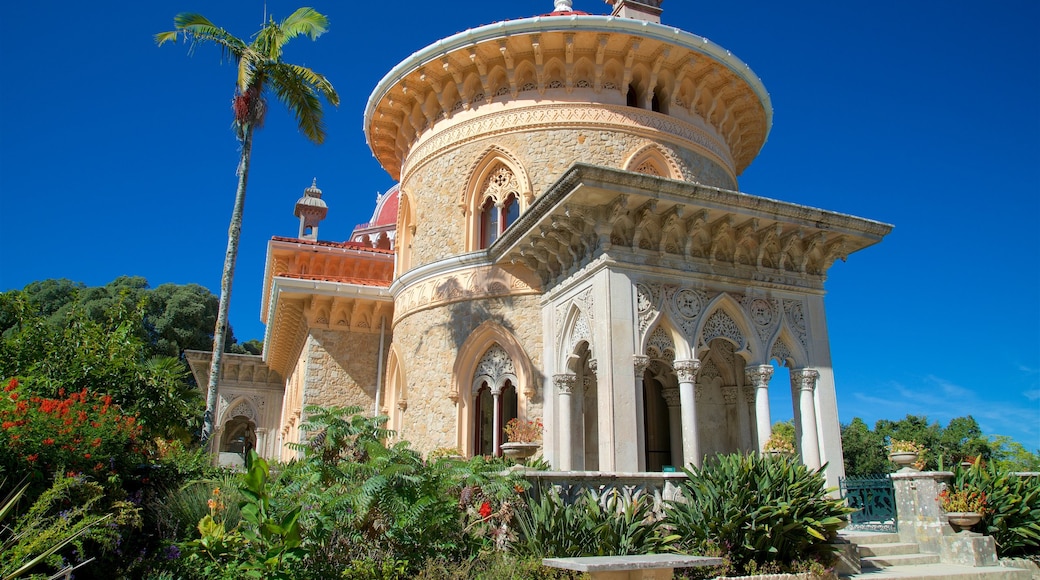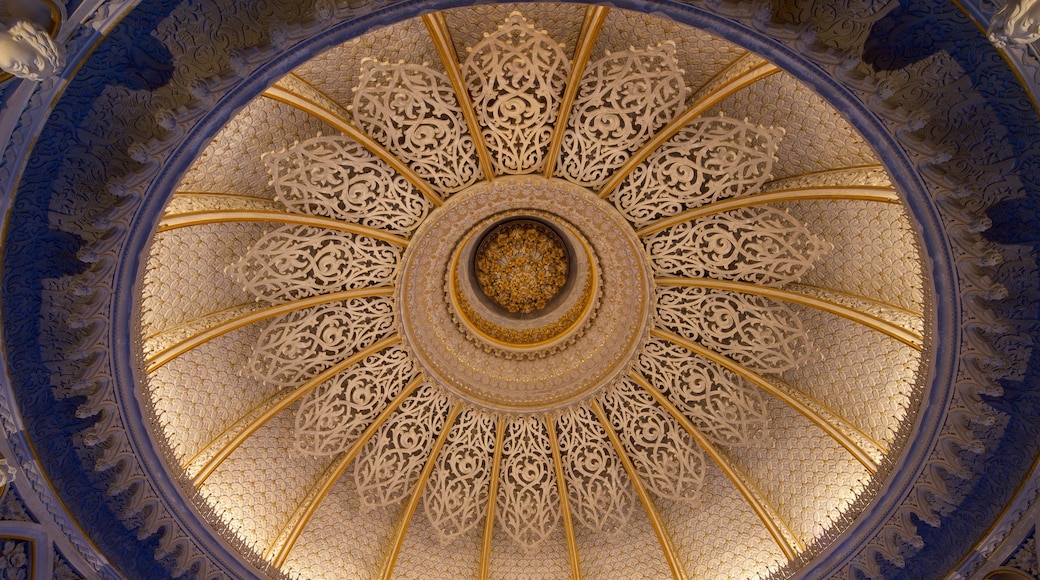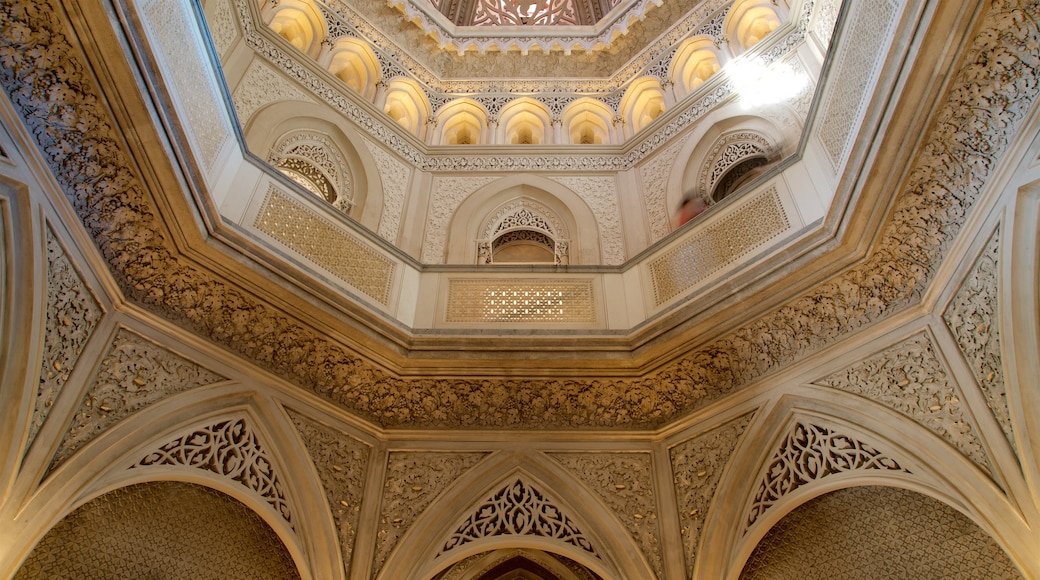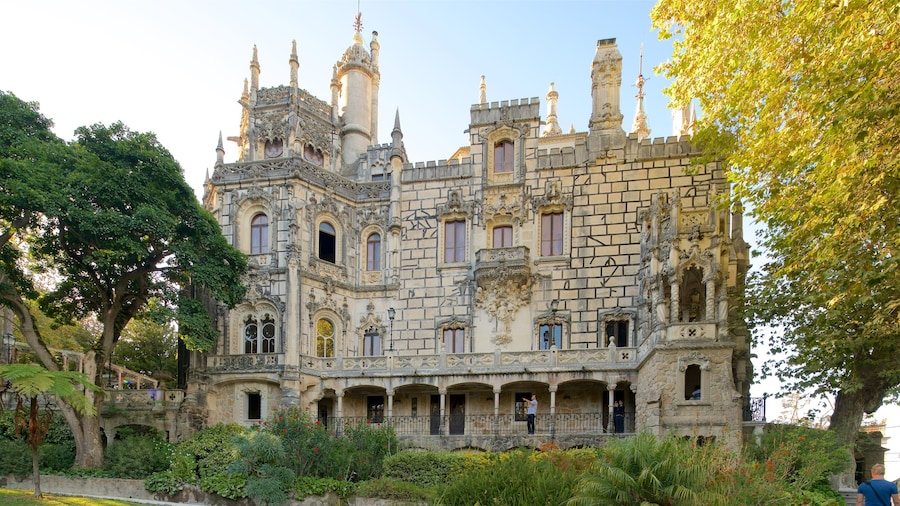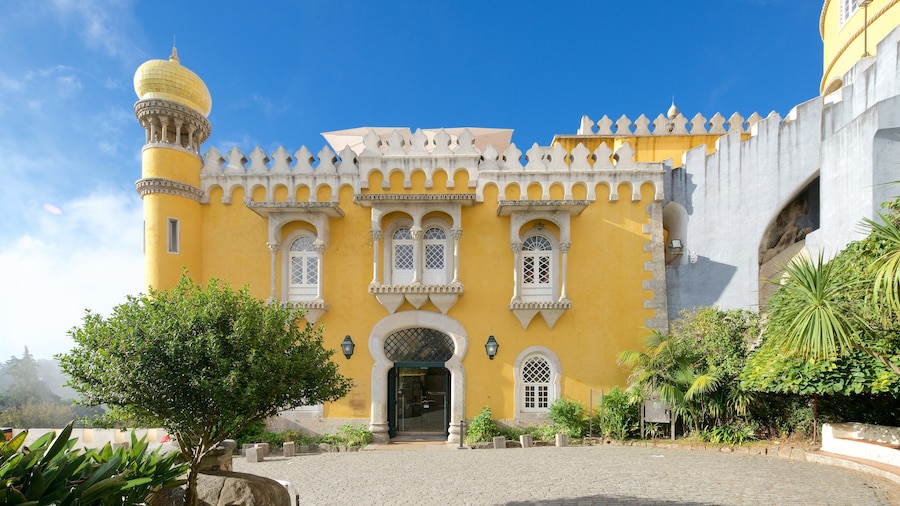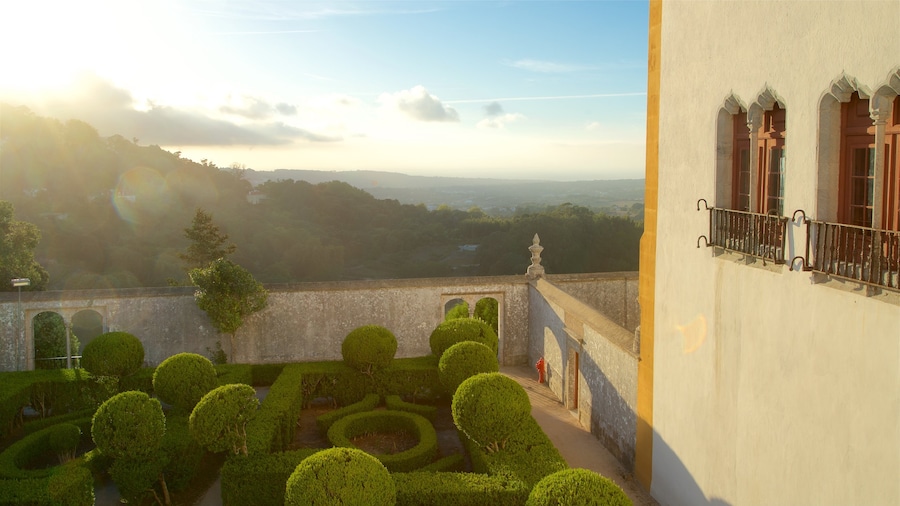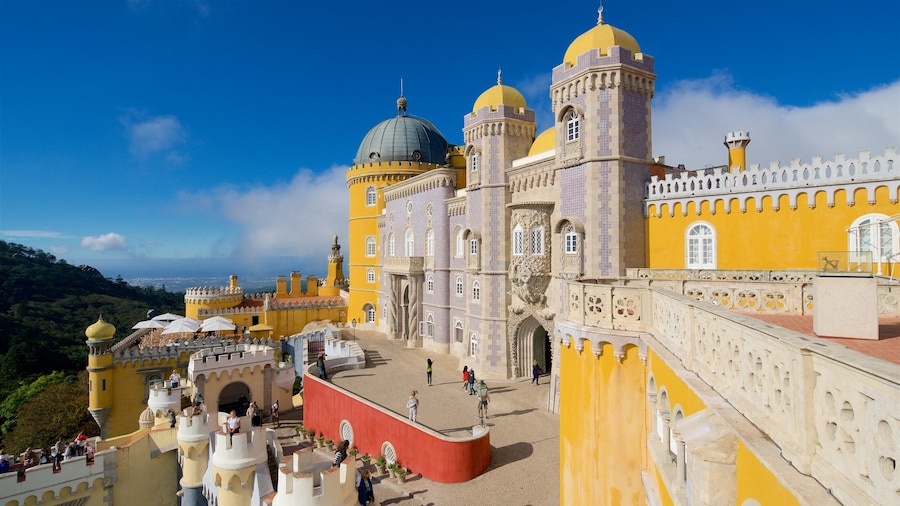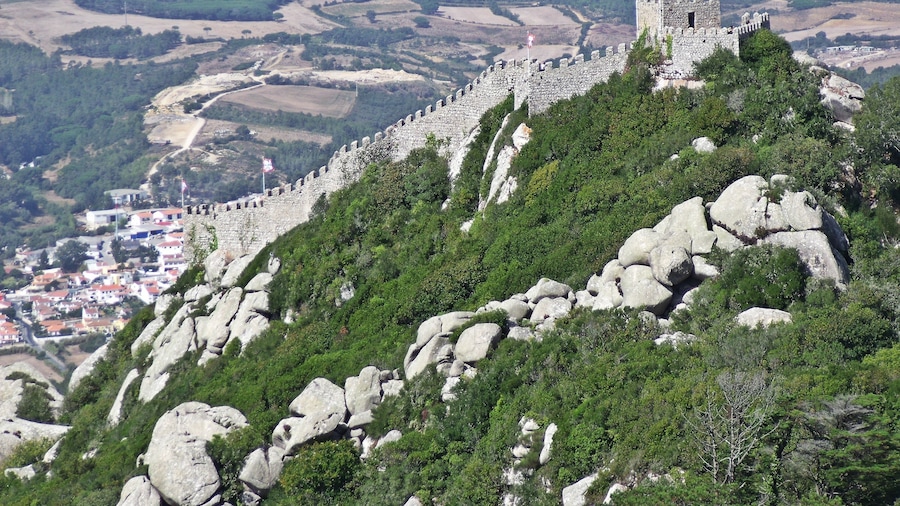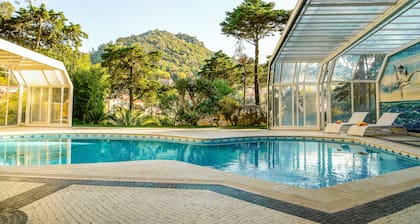Monserrate Palace is often said to be the most striking palace in Sintra. Admire the unusual, almost fantastical, design of the palace building and the gorgeous, wild gardens that sprawl on the hillside surrounding the structure.
Learn about the history of this distinctive palace. It was commissioned by Sir Francis Cooke, a millionaire English merchant who planned to use it as his summer residence. Cooke, taking inspiration from the many different architectural styles he had seen during his travels, had the palace built in the mid-19th century on the site of the ruins of an earlier property. In 1949, the Portuguese state purchased the palace and gardens. They are now part of the Cultural Landscape of Sintra, a UNESCO-listed site.
Examine the unusual design of the palace, which blends various influences, most obviously Moorish and Indian elements. Though the interior has been cleared of original furniture, many architectural details are still intact. Admire the striking domes, arches and columns as well as the intricate carvings and plasterwork detailing.
The gardens, which were originally planted in the 18th century by another wealthy English trader, are equally exotic in style, with many plants from distant lands. Wander around the 74-acre (30-hectare) site and survey the array of plants, which are arranged geographically. There is a Japanese Garden, with Asian species including bamboo and camellias. The Mexican Garden features warm-climate plants such as yuccas and cycads. The gardens also feature a notable folly in the form of a ruined chapel.
To get to Monserrate Palace by public transportation, ride a Sintra-bound train from Lisbon before hopping on a local bus from Sintra’s station. Driving from Lisbon should take under an hour. The park and palace are both open daily, and an entrance fee applies. Opening hours vary depending on the season so be sure to check ahead. Its peaceful hilltop setting makes the palace a fabulous place for a daytrip escape from the bustle of Lisbon.
